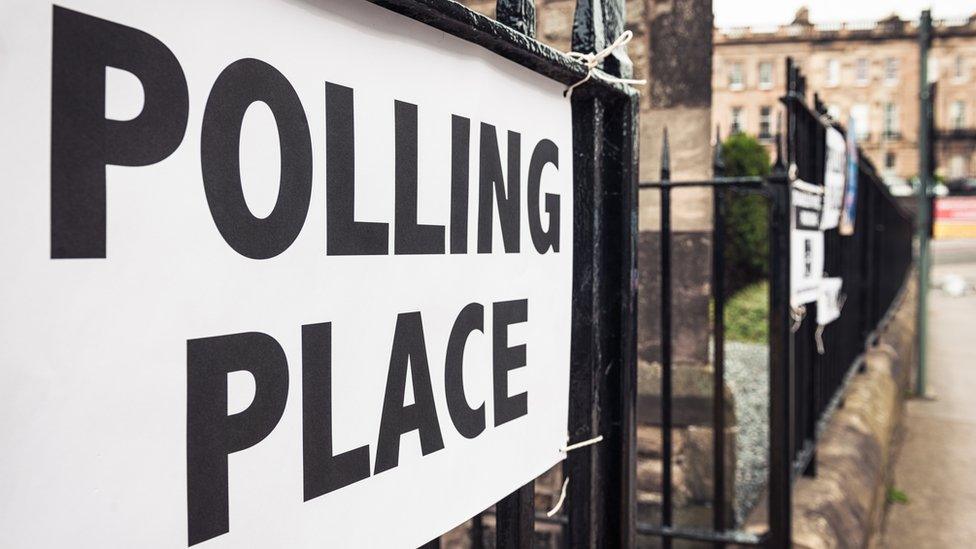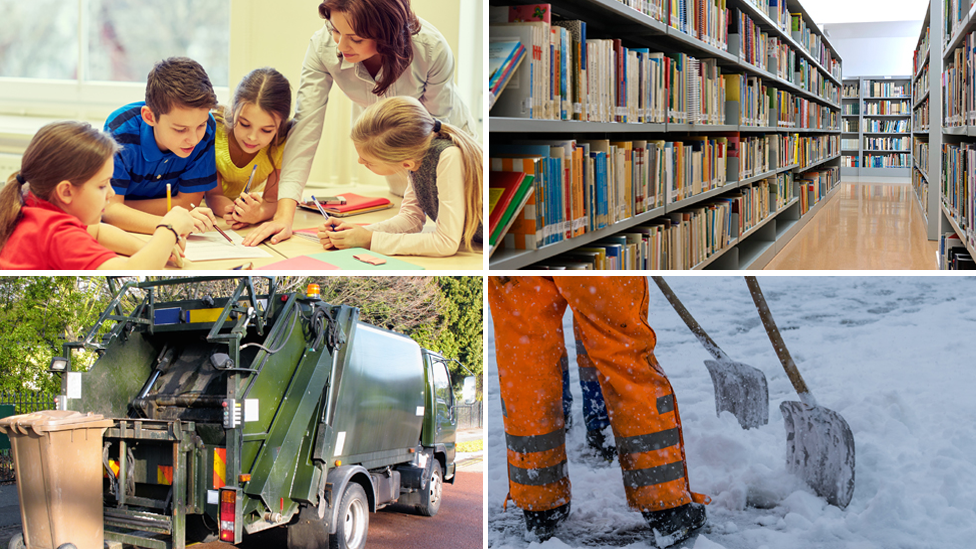How will the general election change Scottish council campaigns?
- Published

The prime minister's plan for an early general election throws a spanner into the works of Scottish council election campaigns.
There was debate within Scotland over whether these elections were an opportunity to discuss Brexit and independence or whether doing this meant important local issues would be ignored.
The council elections will still take place on 4 May as planned.
But will the nature of the campaigning now change?
Some parties and candidates were highlighting Brexit and the possibility of a second independence referendum - others were focusing on things councils are actually responsible for, or national issues connected to local government.
Naturally, there was the usual claim and counter-claim between parties over just who was doing what and why.
So with an unexpected general election - the first to be completely unexpected for decades - do things now change?
Of course, it is nothing new for council elections to take place in the shadow of an oncoming general election.
Intense debate
For example in 1983, 1987 and 2001 the general election came in June - shortly after council elections in many parts of the UK.
In those days, the date of the general election was effectively in the hands of the prime minister. The Conservatives' performance in some areas in 1983 and 1987 was a factor in persuading Margaret Thatcher to go to the country, convinced by her party's prospects.
In each of those years, the prospect of a June election meant there was plenty of intense debate and informal electioneering for months beforehand.
In that sense, the council elections were overshadowed but the local campaigns took place before the election date had been confirmed and the start of official campaigning.
It is worth noting though that in Scotland, there has been no occasion since a standardised system of local government was introduced in the 1970s when a national day of council elections came to be overshadowed by a UK general election.
There were no widespread local elections in Scotland in May 1983, 1987 or 2001. In a sense, this is now uncharted territory.
In the early years of devolution, council elections took place on the same day as the Scottish parliamentary elections - in 2012 they were consciously moved back to a different day to try to put more focus on local issues although the extent to which this has happened is debatable.

Will the local election campaigns focus on local issues or be dominated by Brexit and independence?
The question now is what an unexpected general election may mean in practice for the Scottish council election campaigns.
Concern had been expressed by some - for example the trade unions Unison and the EIS - that the council elections were being overshadowed by Brexit and the possibility of a second Scottish independent referendum.
There are now two possibilities.
With a general election imminent, it could be argued that this is an opportunity to ensure the local elections really are an opportunity to debate council issues and local services. The chance to express a view on Brexit and the referendum will come a few weeks later.
The other possibility is the complete opposite, of course: will the local elections now become a sideshow or a warm-up act? A party could naturally hope for a strong council election performance to set it up for the battle ahead.
One big question now concerns campaigning.
Funding rules
There are strict restrictions on how much money can be spent on local campaigning by Westminster and council candidates.
But there are, in reality, few financial restrictions on generic national campaigning - posters promoting the party or its leader rather than individual candidates, newspaper advertising highlighting a party's policies and so on.
Will party political broadcasts ahead of the council elections focus on local or national issues? What might the impact be of any national advertising which appears before 4 May?
Local authorities will also now be faced with the practicalities of organising a poll they had not anticipated: sending out polling cards, setting up polling places and organising counts.
For some primary school children, it will mean an unexpected day off school.
So will these council elections become a warm-up act for the general election? Or will the next fortnight see more debate on local issues? Watch this space...
- Published6 April 2017
